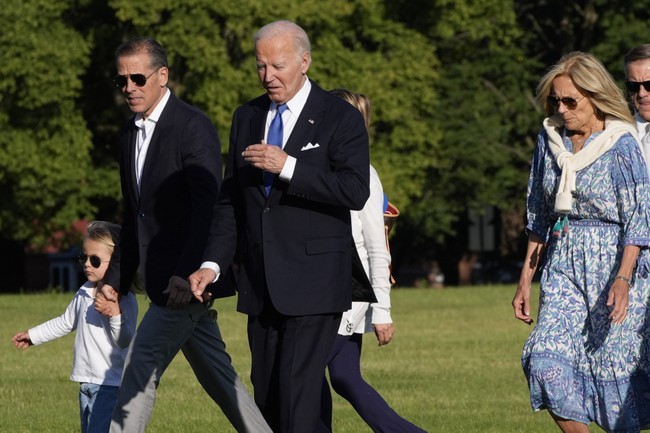Controversial Pardon of Hunter Biden Sparks Debate
Explore the contentious decision by President Joe Biden to pardon his son Hunter, raising questions about political influence, legal repercussions, and potential fallout across political landscapes.
Published December 03, 2024 - 00:12am

Image recovered from redstate.com
The recent presidential pardon granted by President Joe Biden to his son, Hunter Biden, has generated significant controversy, gripping headlines across the nation. Hunter Biden, who faced federal felony convictions related to gun and tax offenses, received a sweeping pardon covering all offenses from 2014 through December 2024. President Biden's decision to circumvent the justice system, despite prior assurances to the contrary, has unleashed a wave of debate on ethical governance and presidential powers.
Central to this controversy is the issue of whether presidential pardons should be applied in cases involving family members, potentially conflicting with the vow to prevent political influence on the judiciary. Critics point to Biden's reversal of his public pledge not to pardon his son as a breach of trust. In the lead-up to this move, Biden had maintained that justice for Hunter would be determined by the courts, aligning himself with a commitment to uphold legal norms.
Public statements by President Biden underscore a belief that his son was unfairly singled out due to his family name. He asserts that the charges against Hunter were exacerbated by politically motivated adversaries, casting doubt on the integrity of the judicial proceedings. Biden's statement, which paints a picture of selective persecution, suggests external pressures were at play, ultimately influencing his decision to exercise pardon power.
The president's critics argue that this decision may tarnish his legacy and erode public confidence in his presidency, paralleling historical instances where executive decisions have faced scrutiny over potential misuse or overreach. Furthermore, some voices within the Democratic Party express concern about falling into the same perceived traps of political favoritism they have criticized in previous administrations.
On the legal front, the implications of this pardon have sparked widespread debate. It absolves Hunter not only of direct charges but potentially shields him from future accusations, including those related to influence peddling. This comprehensive protection could impede ongoing and future investigations, raising alarms about accountability and checks within the system.
Reactions to Biden's decision span the political spectrum, with dissent appearing from both allies and opponents. Certain Democratic figures, such as Governor Jared Polis, voiced disapproval, suggesting that personal loyalty may have overshadowed broader concerns for national integrity. Analysts, including Nate Silver, lambasted the move as driven more by familial ties than public interest.
Across political media, the convergence of legal, familial, and political discussions surrounding this case highlight the inherent challenges of balancing personal responsibilities with executive roles. The broader dialogue touches on themes of justice, fairness, and the pressures underpinning the political landscape as it anticipates shifting power dynamics with the incoming presidential administration.
This unfolding narrative sets a precedent for scrutinizing the utilization of presidential pardons, especially when intersecting with perceived conflicts of interest. As public discourse evolves, the ramifications of Biden's choice will likely reverberate through upcoming political events, influencing future policy and public perception of leadership ethics.







